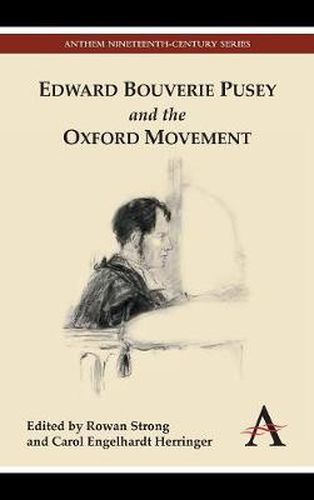Readings Newsletter
Become a Readings Member to make your shopping experience even easier.
Sign in or sign up for free!
You’re not far away from qualifying for FREE standard shipping within Australia
You’ve qualified for FREE standard shipping within Australia
The cart is loading…






The Oxford Movement, initiating what is commonly called the Catholic Revival of the Church of England and of global Anglicanism more generally, has been a perennial subject of study by historians since its beginning in the 1830s. But the leader of the movement whose name was most associated with it during the nineteenth century, Edward Bouverie Pusey, has long been neglected by historical studies of the Anglican Catholic Revival. This collection of essays seeks to redress the negative and marginalizing historiography of Pusey, and to increase current understanding of both Pusey and his culture. The essays take Pusey’s contributions to the Oxford Movement and its theological thinking seriously; most significantly, they endeavour to understand Pusey on his own terms, rather than by comparison with Newman or Keble. The volume reveals Pusey as a serious theologian who had a significant impact on the Victorian period, both within the Oxford Movement and in wider areas of church politics and theology. This reassessment is important not merely to rehabilitate Pusey’s reputation, but also to help our current understanding of the Oxford Movement, Anglicanism and British Christianity in the nineteenth century.
$9.00 standard shipping within Australia
FREE standard shipping within Australia for orders over $100.00
Express & International shipping calculated at checkout
The Oxford Movement, initiating what is commonly called the Catholic Revival of the Church of England and of global Anglicanism more generally, has been a perennial subject of study by historians since its beginning in the 1830s. But the leader of the movement whose name was most associated with it during the nineteenth century, Edward Bouverie Pusey, has long been neglected by historical studies of the Anglican Catholic Revival. This collection of essays seeks to redress the negative and marginalizing historiography of Pusey, and to increase current understanding of both Pusey and his culture. The essays take Pusey’s contributions to the Oxford Movement and its theological thinking seriously; most significantly, they endeavour to understand Pusey on his own terms, rather than by comparison with Newman or Keble. The volume reveals Pusey as a serious theologian who had a significant impact on the Victorian period, both within the Oxford Movement and in wider areas of church politics and theology. This reassessment is important not merely to rehabilitate Pusey’s reputation, but also to help our current understanding of the Oxford Movement, Anglicanism and British Christianity in the nineteenth century.